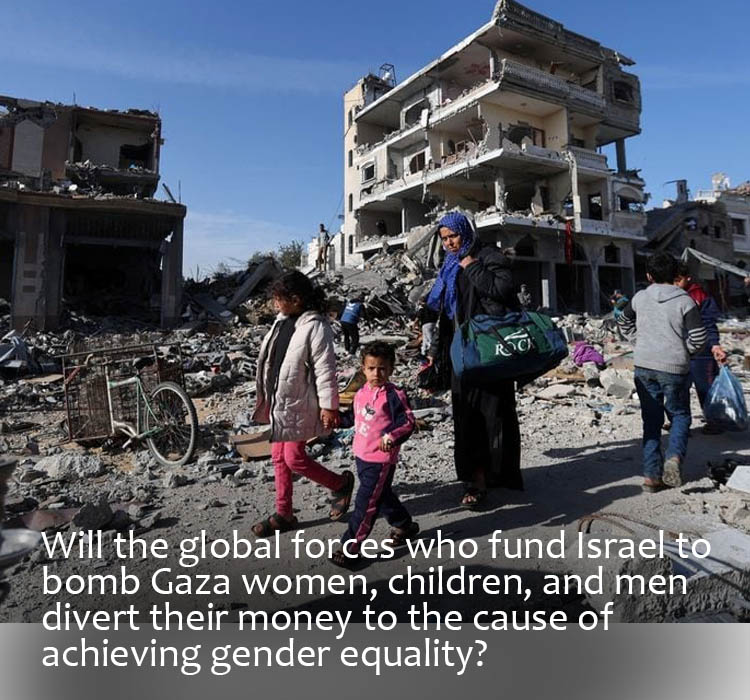
THE goal of gender equality is lagging. According to Progress on the Sustainable Development Goals: The Gender Snapshot 2023, there is an alarming ‘$360 billion annual deficit’ in spending on gender equality measures. The reported deficit is quite striking to know in 2024, when we have only six years left before the 2030 deadline for the achievement of sustainable goals.
Is the deficit because of any financial crisis the UN or the sponsoring countries are facing, or is the
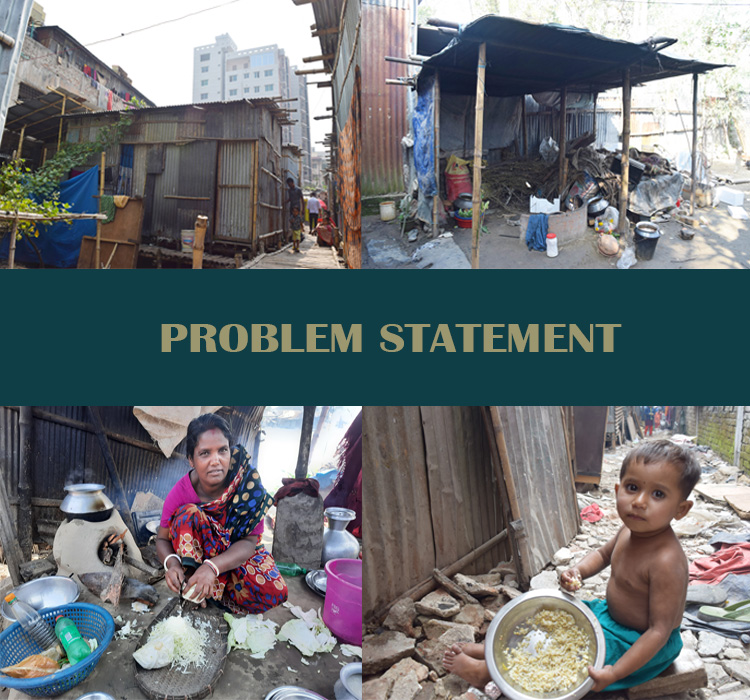
INTRODUCTION
Bangladesh is set to graduate to a lower-middle-income country by 2024 from the status of a least developed country. The country has attained the World Bank’s lower-middle-income status in 2015 with a GNI per capita of $1,190, which grew to $1,750 in 2018. Since 2005, Bangladesh has been officially enjoyed consistent annual GDP growth of over 6% although the reliability of national data is difficult to ascertain. According to World Bank prediction, the COVID-19 glob
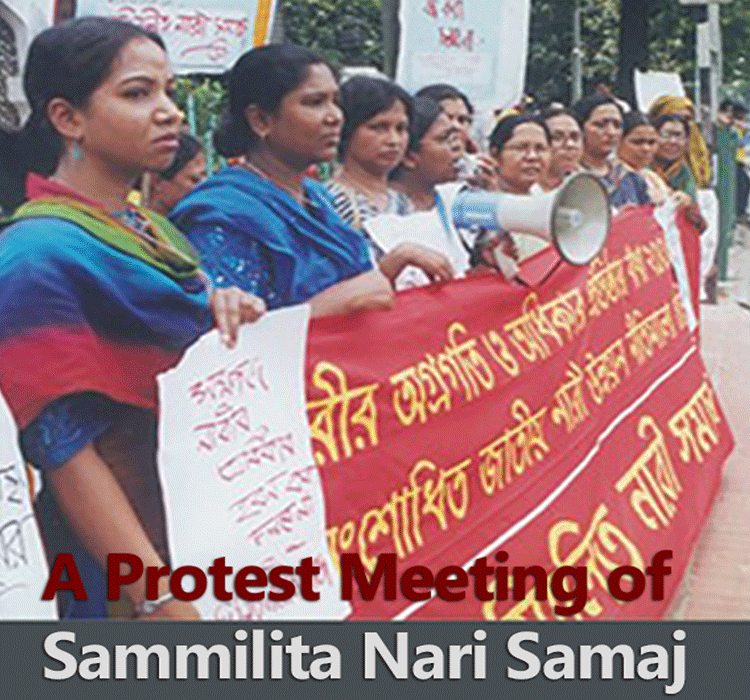
IN ALL aspects of our life — economic, social, cultural and political — we are going through a very difficult time. Conventionally, economic problems are considered at the centre of all other problems, but politics is the determinate sphere where our active engagement is needed for a collective solution.
This is also true for the women’s movement. Given the history of patriarchy, societal norms of male domination, and anti-feminine culture, the critical question is ho
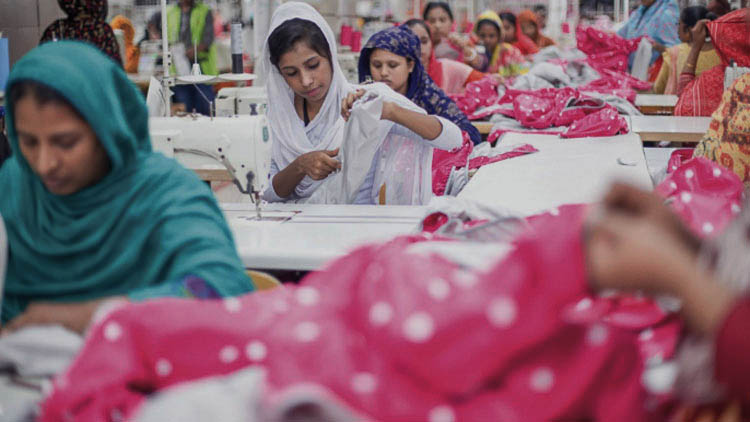
The new apocalyptic term has recently made its way from labour rights to climate change policy discussions. Now the question is, how much attention are we paying it in Bangladesh?
"Just Transition" is a visionary coinage that unifies a local set of principles, processes and practices.
It shifts economic and political agency and power from an extractive and wasteful economy to self-regenerative eco-social bodies that are capable of remaining related to each other.
It const
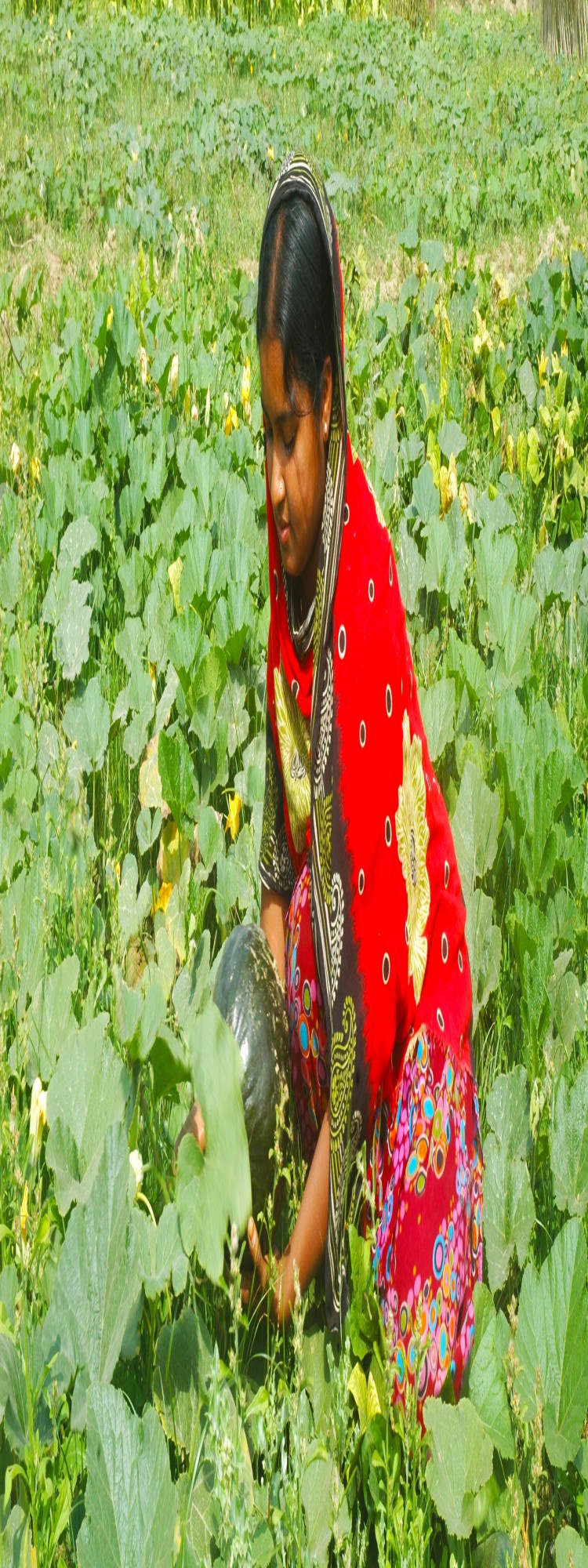
THE report on the State of Food and Agriculture: Innovation in Family Farming (2014) by the UN Food and Agricultural Organisation estimates that 500 million small family farms, owning less than a hectare of land, are the source of more than 80 per cent of the world’s food supply. In Bangladesh small farm holdings (less than 3 acres) constitute 84 per cent of total farming households; medium farms 14 per cent and large farms (over 7.50 acres) are only 9 per cent, keeping to a 2015 Bangla
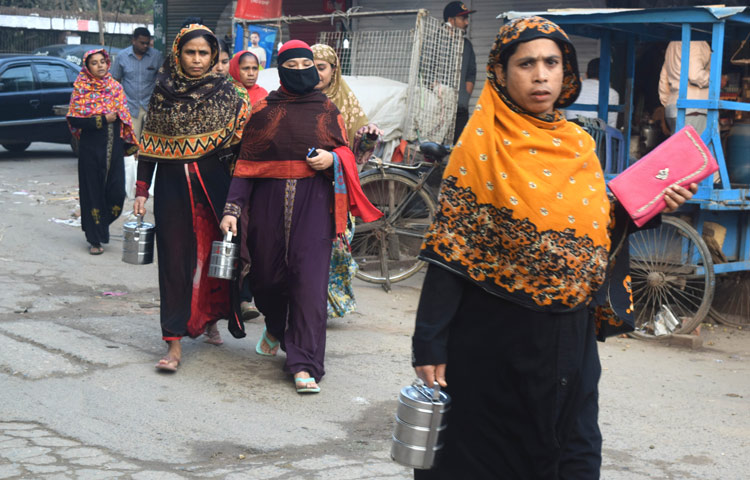
Introduction
Conventional narratives, mostly nationalist, statist and GDP centered neo-liberal statistical accounts of development, outright miss or intentionally exclude certain salient facts about the stylized story of Bangladesh development. Bangladesh has been born through a bloody liberation struggle, but nationalist narrative exclude the fact that it is also the product of the international experiment in capitalist development
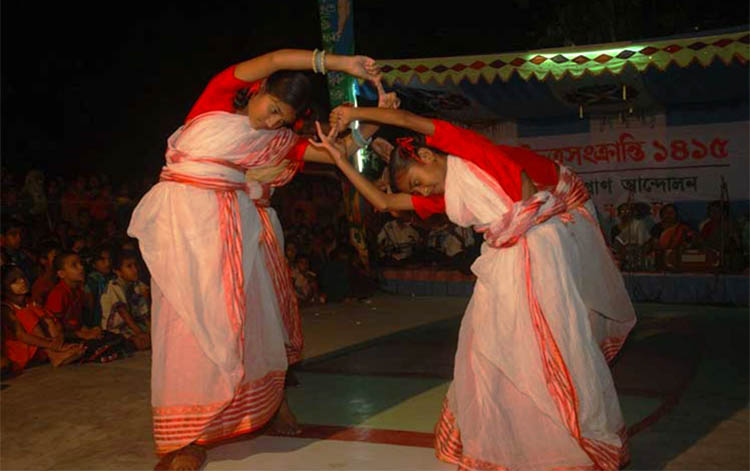
30 Chaitra, 1425 (13 April, 2019) YOU ARE ALL CORDIALLY INVITED. Organized by Nayakrishi Andolon, Nabapran Andolon, Beez Bistar Foundation and UBINIG. T A N G A I L Celebrations, On 30th Chaitra, 1425 (13th April, 2019) special meals with shaks will be prepared by farmers, and everybody is invited to taste the food.
Nayakrishi farmers will collect at least 14 Shaks (leafy vegetables) from the pesticide-free environment of their Nayakrishi villages, along with other ve
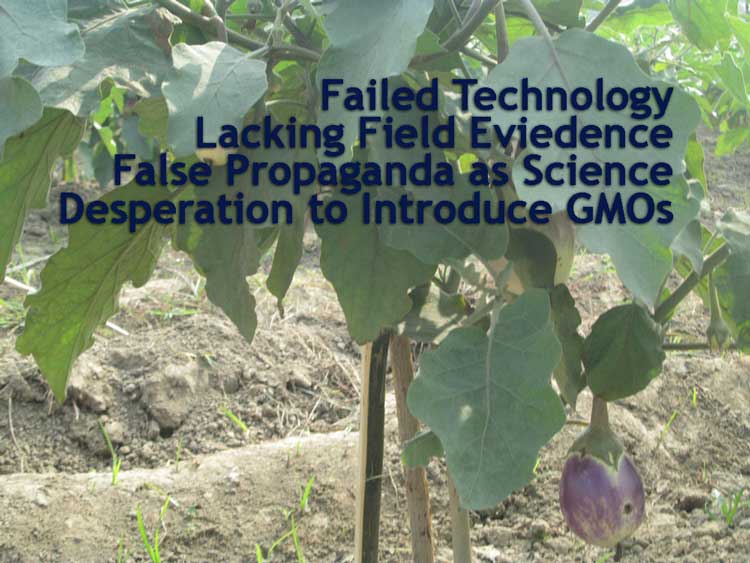
SINCE 2014, Bangladesh has been commercially field testing four Btbrinjal varieties. In October 2013, on its last day of the session, the 9th parliament approved the genetically modified eggplants. The timing was strategic — a very agitated political situation prior to the national election was a convenient moment to introduce an inappropriate and unsafe technology. Btbrinjal has hardly any agronomic value but threatens Bangladesh with potential biosafety risks. Btbrinjal is the first G
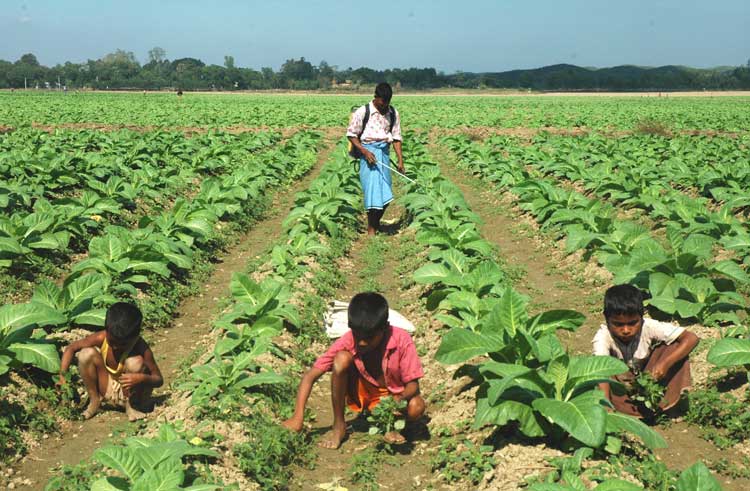
The WHO Framework Convention on Tobacco Control (WHO FCTC) recognizes the need to promote economically viable alternatives to tobacco production as a way to prevent possible adverse social and economic impacts on populations whose livelihoods depend on tobacco production. Moreover, Parties agreed to have due regard to the protection of the environment and the health of persons in respect of tobacco cultivation and manufacture.
Article 17 regards the provision of support for economicall
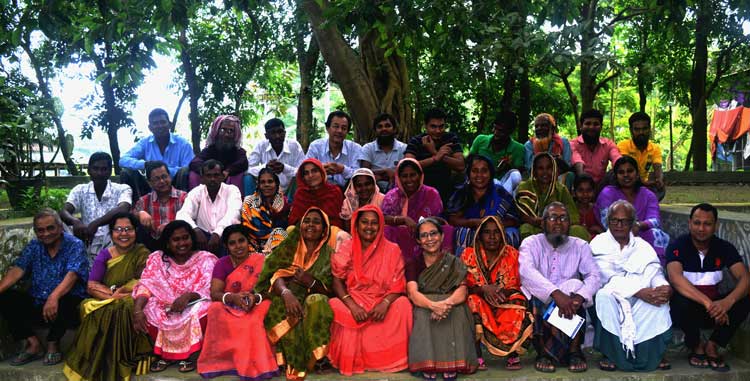
Healthy local seed is the key to ensure the natural and bio-productive foundation of the community. Nayakrishi Seed Network organized a training program to operationalize this principle of Nayakrishi Seed Network in Ridoypur Biddaghor, Tangail, during 13 to 15 May, 2018. The objectives were sharing the experiences of management and operation of the Community Seed Wealth Centers (CSWC) and the Seed Huts(SD) and identify strategic conceptual qu
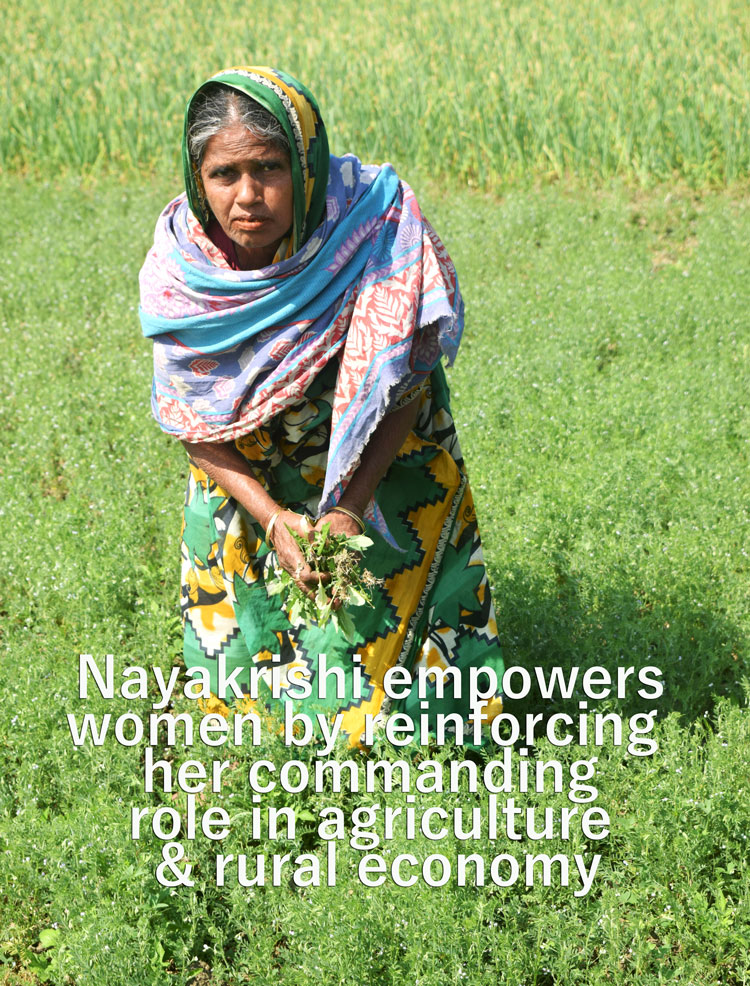
The word ‘economy’, as originally derived from Greek, is not about numbers, quantities and calculations but about the management (νέμoμαι ) of the household (οίκος). Implicit in this notion of household is first of all the active role a household plays in the biological reproduction of both the members of the family as well as the ecological and material foundation of farming, i.e. the conditions of production and secondly, the ex
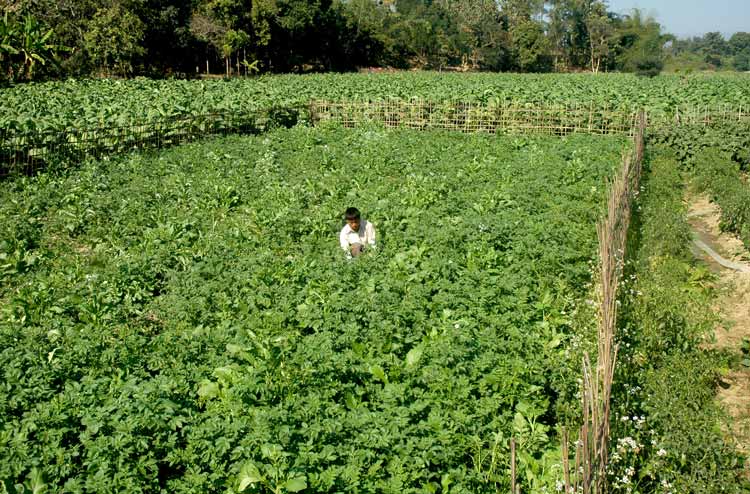
Introduction
Bangladesh must ensure food and nutrition for the people and prevent an alarming increase in non-communicable diseases caused by tobacco consumption and production. In order to achieve that goal, reclaiming all lands occupied by tobacco and immediately shifting to food production and agroecological restoration of damaged landscapes is a priority. As a fertile riverine delta with biodiverse agrarian systems with rich indigenous knowledge of food production

A snapshot of Newshour Extra Talkshow (ATN News) broadcasted on February 4, 2017.
WHAT is the role of the ministry of environment and forestry in giving approval to a government project? I wanted to ask the very question to the minister directly in a TV show in which he featured recently. I couldn’t get through. So here I am asking the question for his kind attention.
The Newshour Extra Talk show of ATN News on the night of February 4, 2017 invited the honourable minister,

Bt Brinjal, the genetically modified brinjal introduced in Bangladesh despite concerns and failures in performances, is imposed again for the third round with newer farmers during 2015 – 2016 winter crop season. No report has been published as research findings of the first two rounds of field cultivation except some propaganda news. The website (both Bengali and English page) of Bangladesh Agricultural Research Institute (BARI) has no information. It only says Bt Begun (Bt Brinjal). T
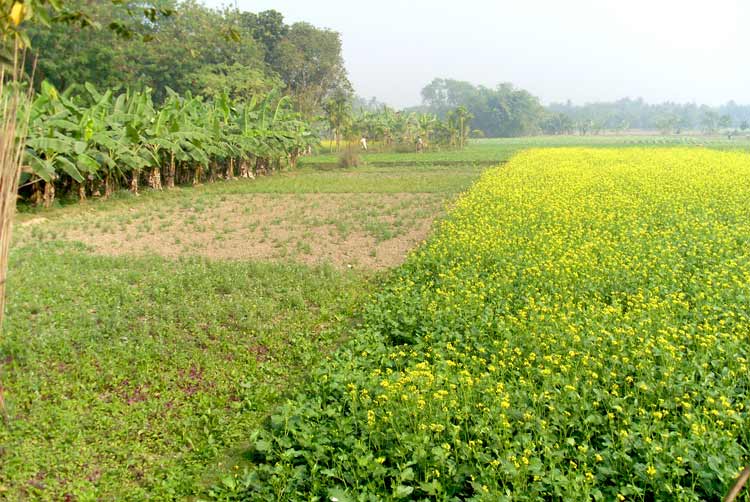
Ecological meaning of ‘small and marginal’ farmers
We know that ‘small and marginal farmers’ not only ensure food supply to 150 million people of Bangladesh but contribute to the conservation and regeneration of country’s agro-biodiversity and genetic resources. Small and marginal farms also perform various other ecological and environmental serv
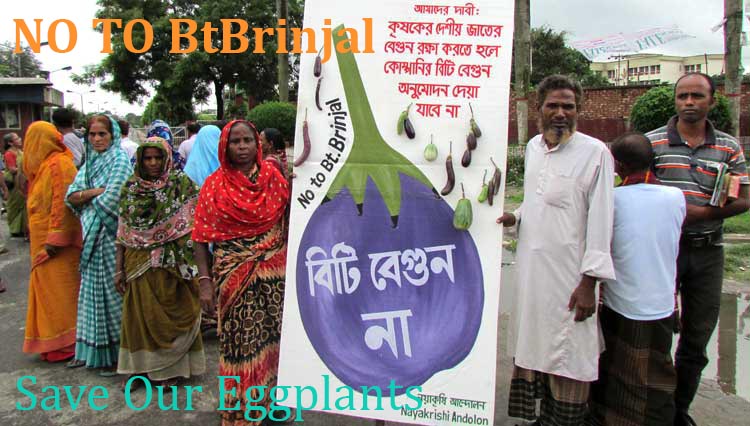
Mark Lynas is amusing. He visited the field of ‘Mohammed Rahman’, of Krishnopur, Bangladesh and claimed: “but improved seed genetics can make a contribution in all sorts of ways - It can increase disease resistance and drought tolerance, which are especially important as climate change continues to bite; and it can help tackle hidden malnutrition problems like vitamin A deficiency”. The claim is quite flowery like the title,
| Read more... | View: 18909 | Leave Comment ()  |

A discussion meeting of over two thousand farmers was held on 6 May, 2015 against the aggressive extension of tobacco cultivation in Chakaria Upazila, Cox’sbazar district at Majherparas Bazar, Kakara union at 5pm. The farmers and their representatives shared their sufferings due to oppressive treatment of tobacco companies at the time of procurement of tobacco leaves. On the otherhand, if they grow food crops, the lack of storage facilities for perishable ones, they suffer economic loss

On January 8, 2015, Deneb Sumbul, daughter of Najma Sadeque sent an e-mail in the listserve that Najma Sadeque used to use with the subject “My Najma Sadeque no longer with us” . The mail said, “With the greatest sorrow, this is to inform you that my mother, Najma Sadeque passed away last night around 12:30. She was suffering from kidney failure. In how many ways can I describe my wonderful indomitable mother - she wore so many hats - an activist to the last, journalist fo
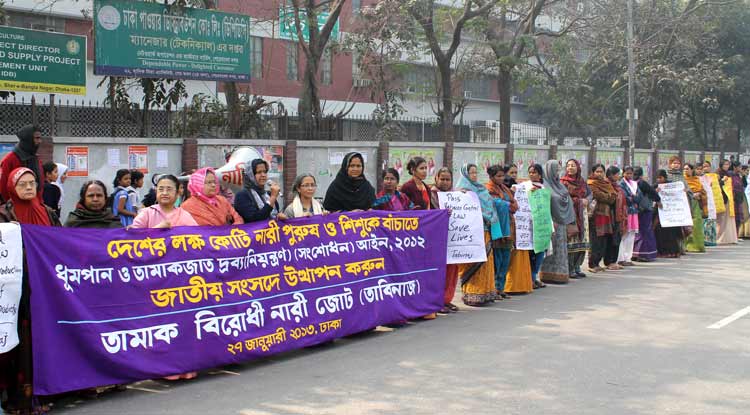
The World Health Organization (WHO) took the lead in 2003 to formulate a global treaty called the WHO Framework Convention on Tobacco Control (FCTC) is an evidence-based treaty that reaffirms the right of all people to the highest standard of health. It was the first treaty that was designed in developing a regulatory strategy to address addictive substance, such as tobacco and that asserted the importance demand reduction strategies as well as supply issues. The FCTC was unanimously adopted
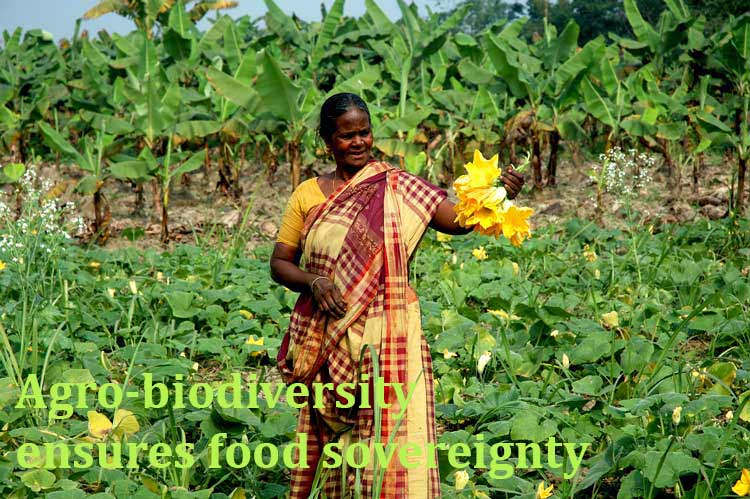
The International Day for Biological Diversity on May 22 is observed to increase understanding and awareness on biological diversity that include ecosystemic variability and indigenous knowledge and/or cultural practices. In December 2000, the UN General Assembly adopted this day to commemorate the adoption of the text of the Convention on 22 May 1992 by the Nairobi Final Act of the Conference for the Adoption of the Agreed Text of the Convention on Biological Diversity (CBD).
In Bangl

'Currently most research is invested in new technologies rather than in making better use of existing knowledge. Much more research is needed to turn existing knowledge into practical application.' (WHO 2013)
UBINIG’s commitment to biodiversity-based approaches to agriculture, health and nutrition is based on a critical understanding of various technological approaches to solve some
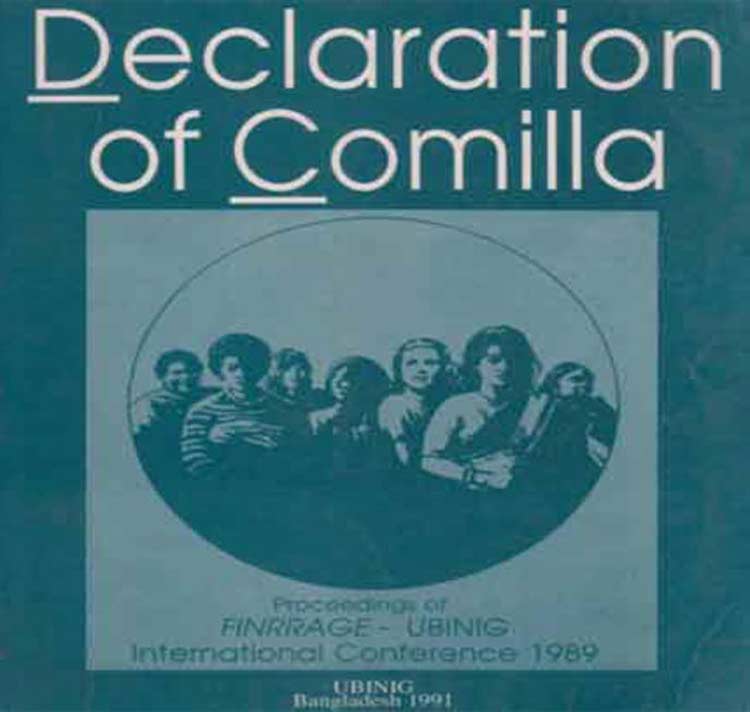
The Feminist International Network of Resistance to Reproductive and Genetic Engineering (FINRRAGE) was formed as a network of feminists from 20 countries who were critically concerned with the development of reproductive and genetic engineering technologies and their effects on women. These technologies force a variety of different forms of reproductive control over women. FINRRAGE emerged with a growing awareness that it was time to question the assumptions that contraceptives, new reproduc
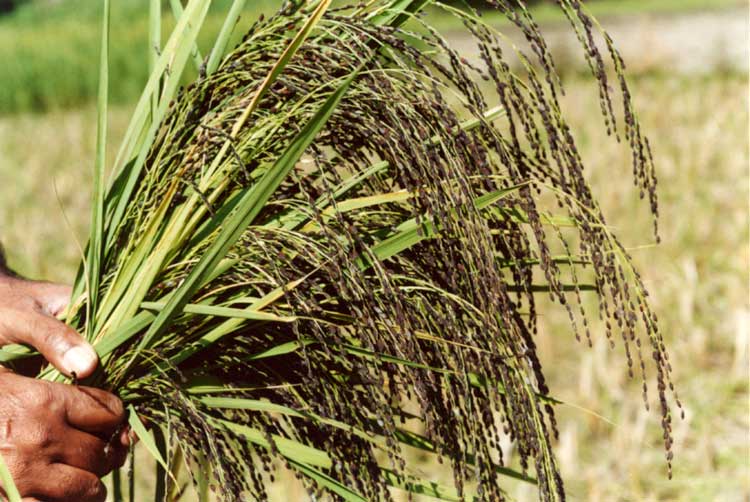
Rice production in Bangladesh is a crucial part of the national economy. The main food crop of the country is rice. Rice cultivation covers about 80 percent of cultivable land and production varies according to seasonal change based on water supply. The largest rice crop is aman, accounting for more than half of annual production. Some traditional varieties of aman rice are sown broadcast in spring on low land. The plants thrive in summer and rainy seasons. The matured crop is harvested in la
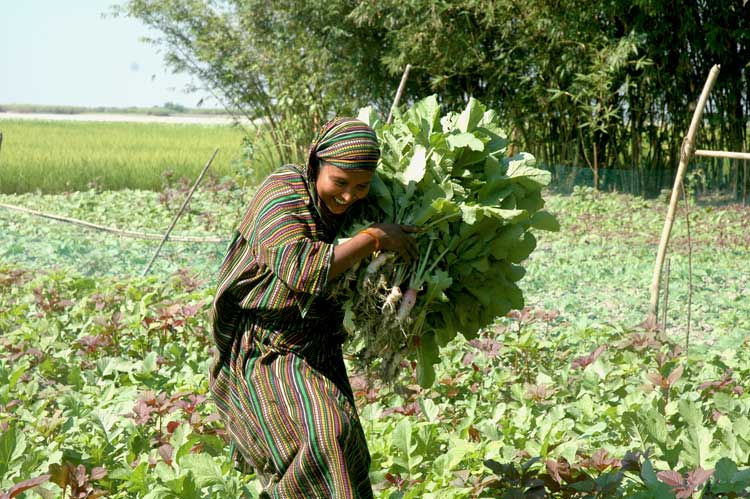
The Nayakrishi farmers at Rajendrapur and adjoining villages in Baraigram upazila of Natore district have been maintaining indigenous genetic resources. They have been maintaining the seeds of local varieties of crops in cultivation. The seeds are maintained on farm as well as in the Nayakrishi Seed Hut at community level. The Nayakrishi initiative aims to ensure the livelihood of the rural community through community based biodiversity management by safeguarding genetic resources and enviro
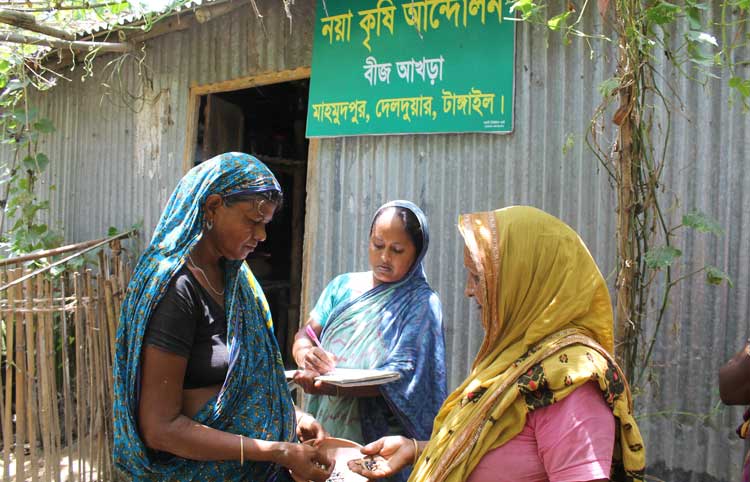
Mamudpur Nayakrishi Seed Hut (NSH) started its journey in 2001. UBINIG has been holding training session, exposure visit, farmer exchange, festival in Mamudpur and adjoining other villages on biodiversity based farming. Rina Begum along with other farmers of Mamudpur village received Nayakrishi (Biodiversity based farming) training conducted by UBING. Since then they have been practicing Nayakrishi. Gradually the other farmers started joining Nayakrishi. These activities have created awarenes

Weapon Producer's Concern about Food insecurity in Bangladesh!! Dupont, the producer of weapons and killing chemicals sponsors Global Food Security Index!
On August 10, 2012 a news item came up on various news media wiith headlines such as 'Bangladesh least food secure S Asian Nation' (Bdnews24.com) which was quite disturbing (also see, 'food security situation poor in Bang

UBINIG (Policy Research for Development Alternative) and the biodiversity-based farmers’ initiative “Nayakrishi Andolon” expressed concern over promotion of technologies that are direct threat to biodiversity and the food sovereignty of the country.
In a discussion meeting titled ‘African NERICA rice and Bt. brinjal are threat to bio-diverse

Future of farming in Bangladesh depends on the capacity of the government to insist on the priority of detoxicating agriculture and stop further erosion of agroecology and environment.
Rio plus twenty means a decision about our future. Somehow the declaration of the Heads of States and Governments, knick-named as Zero Draft, has the title “The Future We Want”. But whose future? The
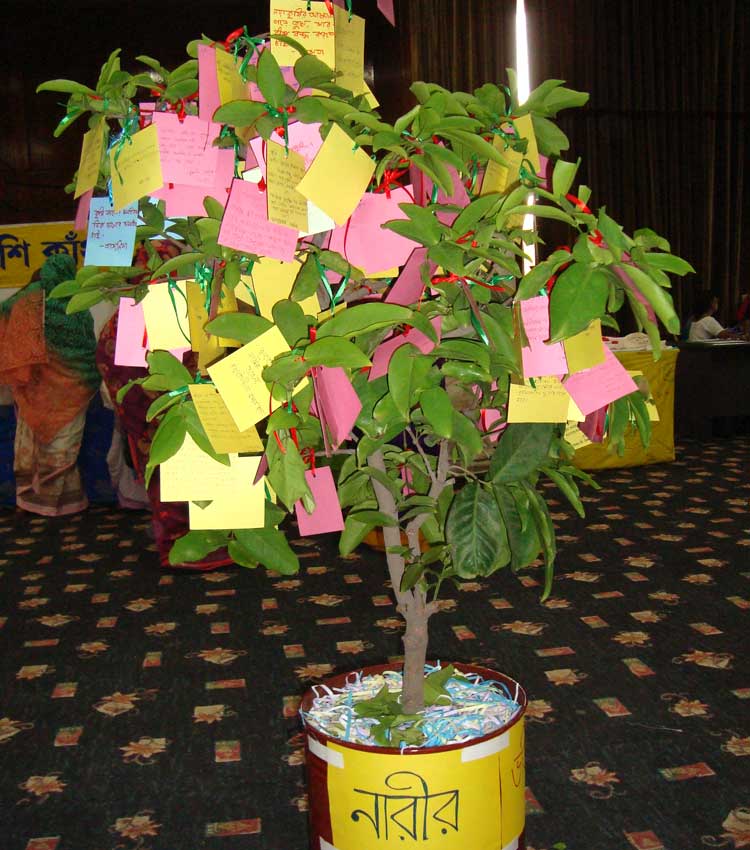
JAMRUL: TheTree Symbolising the Future Women Aspire
Women's Conference and Festival 2012 was organized in the context of developing a perspective about future that women want. JAMRUL, or the Rose Apple (Syzygium samarangense)) Tree - a very sweet juicy fruit tree, favorite to women, came out as the sy
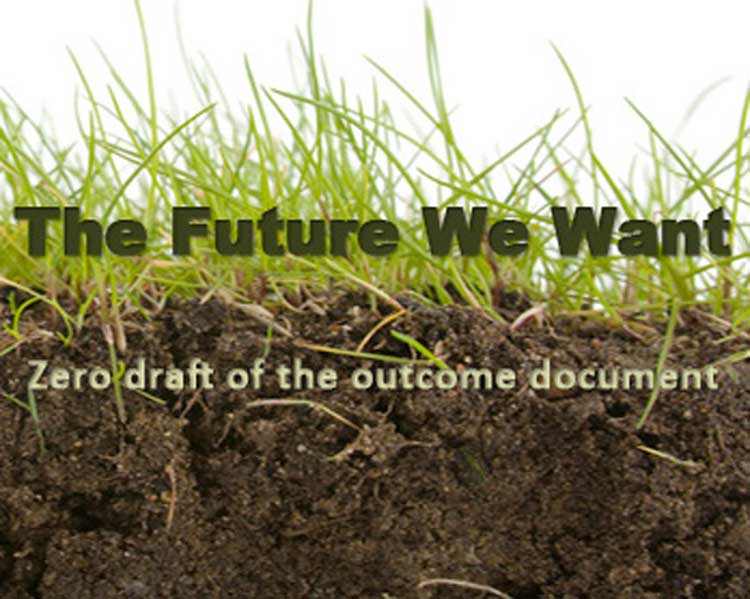
A Critique of the Rio+20 Zero Draft
Twenty years after the Earth Summit, the United Nations Conference on Sustainable Development (UNCSD) will take place in Rio from 20-22 June, 2012. For two decades, peoples movement have worked hard for social, economic and environmental justice but yet the global economic system only resulted in a billion people starving from hunger. The gap b

Sale of body parts for overcoming poverty and indebtedness!
In a country where over 40% of the population lives below poverty line and 13% (or 20 million) of the total population suffer from kidney diseases, the link between kidney trade and poverty is not very difficult to establish. The recent incidents of kidney trade, by some unscrupulous ‘brokers’ bu

Dreaming & Mumbling with Numbers
Finance Minister Abul Maal Abdul Muhith made a Power Point presentation of the National Budget for 2010-11 fiscal year in the parliament on June 10, to spend Tk 1,32,170 crore or US$ 19 billion, with a target of 6.7 % GDP growth as against 5.5 percent for the current year. The proposed Budget will have a deficit Tk. 39

Say 'No' To Tobacco Cultivation
Kushtia. 30 March. A farmers' meeting in village Boro Gangdia (Union Khalisha Kundi) of Daulatpur upazilla on 30 March, 2010 expressed grave concern over the aggrssive extnsion of tobacco production in the district of Kushtia, threatening serious crisis in food and destruction of environment, ecology, bodiversity and livelihood of local communities. The meeting was organized by UBIN
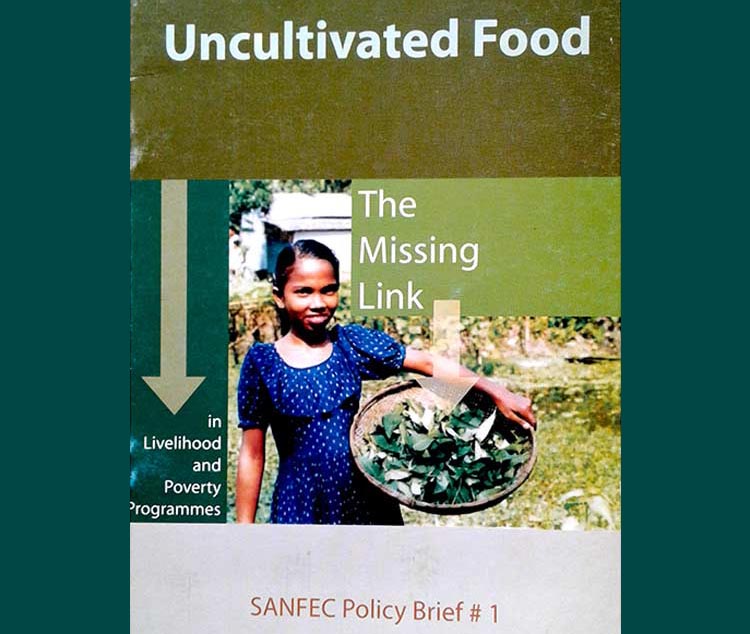
This is SANFEC Policy Brief # 1 prepared for sharing our findings on uncultivated food and its relation to biodiversity, livelihood, culture and food sovereignty. SANFEC members, along with the farmers have conducted research on this issue and have enough empirical information to substantiate statements made in this policy brief.
A SANFEC International workshop on Uncultivated Food and Plants was held during 2 – 4 October 1999, which helped enormously in developing the concept a
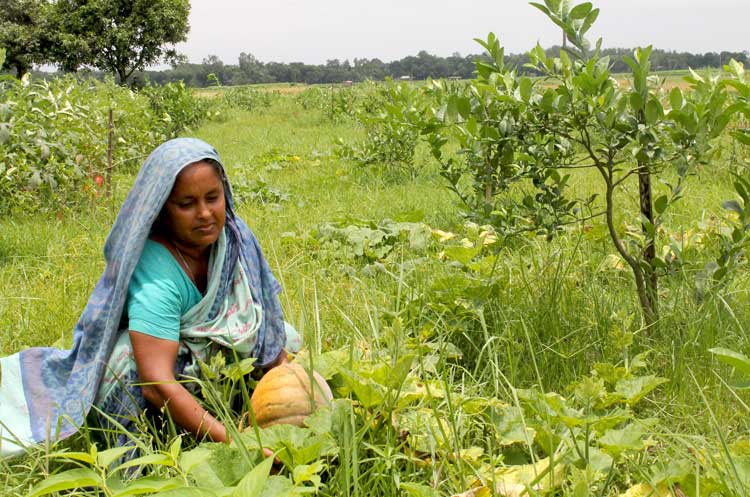
A Nayakrishi Perspective on New Green Deal
Introduction
Global Green New Deal is on the road to make growth look green. How green it is for the southern countries; is an extremely important question. Policy Brief of United Nations Environment Programme (UNEP Marc
স্থানীয় জাতের বেগুন রক্ষা করুন
প্রতিবাদ ও দুনিয়ার সেরা বিজ্ঞানীদের সাবধান বাণী উপেক্ষা করে ক্ষতিকর বিটিবেগুন বা বিকৃত বেগুনের জাত বাংলাদেশে প্রবর্তন ও বাজারজাতের অপপ্রয়াস চলছে। বেগুন গাছে মাটীর ব্যাক্টেরিয়ার জিন ঢুকিয়ে পুরা বেগুন গাছকেই বিষাক্ত করা হয়। সেই গাছ ফল আর ডগা ছিদ্রকারী পোকা খেলে মরে যায়, কিন্তু বিষাক্ত বেগুন মানুষ খেলে ক্ষতি হয় না, এই হচ্ছে বৈজ্ঞানিক দাবি।
কী দরকার? কারন সারা দুনিয়ায় বেগুনের বিলিয়ন ডলার ব্যবসা। মার্কিন বহুজাতিক কম্পানি মনসান্টো ও ভারতীয় কোম্পানি মাহিকো তা তাদের একচেটিয়া নিয়ন্ত্রণে নিতে চায়। এর কারিগরি দিকের মালিকানাও তাদের। বাংলাদেশের বেগুনের ওপর এই কারিগরি খাটীয়ে তার ওপর বুদ্ধিবৃত্তিক মালিকানা দাবি করছে তারা। অন্য দিনে বাংলাদেশের স্থানীয় বেগুন ধ্বংস করে শুধু কম্পানির বেগুন আমাদের খাওয়াতে চায়। জীবন ও স্বাস্থ্যের ওপর যার সম্ভাব্য ঝুঁকি মারাত্মক হতে পারে।
বাংলাদেশের প্রাণবৈচিত্রের ওপর বহুজাতিক কম্পানির দখলদারির এই কৌশল প্রতিহত করতে হলে নিজেদের বেগুনের জাত চেনা ও রক্ষা করা জরুরী। এটা আমাদের সকলের সচেতনতা ছাড়া সম্ভব নয়। অতএব নিজেদের বেগুনের জাত সম্পর্কে জানুন, এবং নয়াকৃষি আন্দোলনের কৃষকদের সহায়তা করুন। এর বিরুদ্ধে লড়তে হলে নিজেদের জাত রক্ষা করার বিকল্প নাই।
প্রাণবৈচিত্রের উৎসভূমি (origin of diversity) হিসাবে বাংলাদেশ বেগুনের বৈচিত্র্যের দিক থেকে দুনিয়ার যে কোন দেশের চেয়ে সেরা। বেগুনের আন্তর্জাতিক বাজার বিশাল, কারণ সব্জির মধ্যে বেগুন সুস্বাদু এবং এর মধ্যে তেল (fat) নাই বললেই চলে। তার মানে বাংলাদেশের অর্থনৈতিক সমৃদ্ধি নিশ্চিত করবার জন্যও আমাদের দেশি জাতের বেগুন রক্ষা করতে হবে।
নয়াকৃষি আন্দোলন যে সব বেগুন নিয়মিত চাষ করে তার কিছু ছবি এখানে দেওয়া হোল।
Protest Against Btbrinjal Continues
SUPPORT PEOPLE"S PROTEST AGAINST BtBRINJAL
Pictures of rallies and protests against Btbrinjal. Farmers, scientists, environmentalists, ecologists, lawyers, teachers and consumers have been protesting agaginst Btbrinjal since
Bangladesh Agriculture Research Institute (BARI) was trying to get approval from the government for cultivation and commercial release based on inadequate, incomplete and unethical research practice. GMO promoters Undermined strict adherece of 'preacuationeruy principle' during field trial necessery to protect environment and all life forms including human beings from potential environmental and health effects of the genetically modified crops.
UBINIG Centre (BIDDAGHORS)
Nayakrishi centers in the districts of Tangail, Pabna, Cox’s Bazar, Kushtia.
Introducing Dai Mas (Traditional Birth Attendants)
Introducing key leaders of the rural health movement in Bangladesh.
Dai Ma (Traditional Birth Attendants) plays a major role in rural health systems particularly in maternal & child health and in the use and conservation of medicinal plants. UBINIG is working with them for a long time to develop a link with their practice with agro-ecological approach to health, medicine and nutrition led by Nayakrishi farming communities who practice biodiversity based ecological agriculture. Dai Mas are now organised into a network engaged in innovative knowledge practices and institutional experiments. This will enable them to contribute more effectively to national health system. They have strong grass root connections and effective social network. They are self-motivated and monitor the health of mother and child on their own as a responsible member of the community. Sense of responsibility come from their being woman and the natural instinct to help other women in child birth and child rearing. A command on indigenous knowledge and profound understanding of reproductive and child health make them unique in their role in the community. UBINIG is working with theme to find innovative and effective ways to link them with national health system.
Daighors (দাইঘর)
Translating Dai Mas as 'Traditioal Birth Attendants' misses the profound cultural, social and knowledge based practices of women in rural areas of Bangladesh. First, Dai Ma’s symbolises a social relationship. Her responsibility does not star during childbirth, rather when a woman comes as a bride in her village or locality. She is the main source of reproductive knowledge for women in reproductive age. In most cases, the Dai Ma is connected to the families of her in laws by helping in the birth of her husband. Dais are always married and have children, this is her acceptability as 'Dai' (birth attendant) in the village. She is the living medical and health record of the women in the village and without her a community health care system is almost impossible on which the national health care system has to rely on.
Glimpses from Nayakrishi Villages
Biodiversity-based ecological agriculture is note merely 'ORGANIC', but a unique practice without pesticide, chemicals and ground water extraction to achieve the highest systemic yield from per acre of farm land. Households are small ecological production units constituting a complex design encompassing the whole village. You can purchase the farmer's produce from Shashyshaprabartana.
Samples of UBINIG Posters
Posters express concerns and ideas. They are interesting materilas to read and listen as well participate in the issues one is committed. UBINIG regularly prints and shares posters as a way to build up networks and communications. Web through some examples posted here.
UBINIG PUBLICATIONS (ENGLISH)
UBINIG publications. To order please contact UBINIG (Policy Research for Development Alternative) 88 0178 001 1194 or`
Narigrantha Prabartana
6/8 Sir Syed Road, Mohammedpur, Dhaka -1207.
Phone: 880-2-9140812 . email: narigrantha@gmail.com
আমাদের বাংলা প্রকাশনা
উবিনীগ (উন্নয়ন বিকল্পের নীতি নির্ধারণী গবেষণা) থেকে প্রকাশিত গুরুত্বপূর্ণ বাংলা বইয়ের তালিকা। আরও জানার জন্য উবিনীগ অফিসে যোগাযোগ করুন (মোবাইল: ০১৭৮০০১১১৯৪)। বই সরবরাহ ও যোগাযোগের জন্য:
নারীগ্রন্থ প্রবর্তনা ৬/৮ স্যার সৈয়দ রোড, মোহাম্মদপুর, ঢাকা-১২০৭, বাংলাদেশ।
ফোন: ৮৮০-২-৯১৪০৮১২, মোবাইল: ০১৯৫ ৪৪৭৬০৬৪ । ই-মেইল: narigrantha@gmail.com










